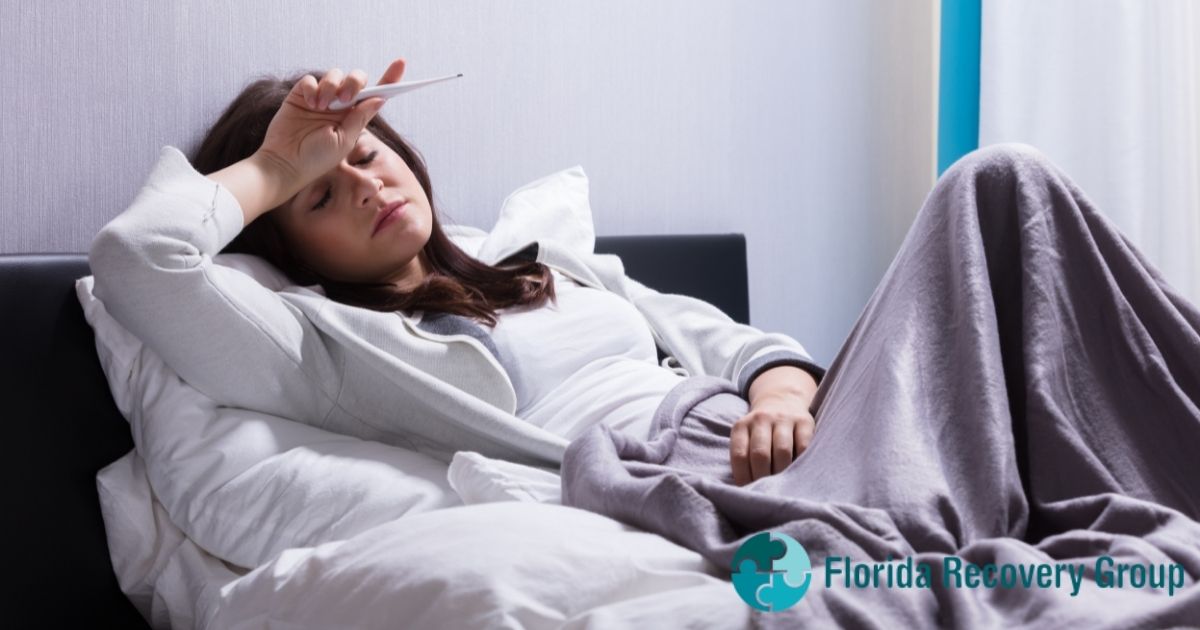
28 Sep Heroin Withdrawal Timeline, Symptoms, and Treatment
Heroin is a powerful opioid drug. Using heroin can very quickly result in a powerful addiction that can be difficult to treat. However, with the right treatment and support, recovery from heroin addiction is possible.
The first step of heroin addiction treatment is detox. Detox is when addictive substances leave the body and when you can expect to endure symptoms of withdrawal. Understanding what happens during each stage of the heroin withdrawal timeline can help prepare you for what lies ahead.
Understanding the Heroin Withdrawal Timeline
Everyone who lives with heroin addiction will have their own heroin withdrawal timeline. This is because the severity and length of your symptoms depend heavily on how severe your addiction is, your health, and other personal and environmental factors.
Over time, the body adapts to the presence of heroin in your system. Withdrawal occurs when the drug is no longer present in your body.
Generally, people who are detoxing from heroin experience the following withdrawal timeline:
- 6-24 Hours: Physical symptoms begin. They include muscle pain, tremors, insomnia, anxiety, and very intense cravings for heroin.
- 1-3 Days: Physical symptoms continue or worsen. People may also experience nausea and vomiting.
- 4-7 Days: Physical symptoms may begin to decrease. Psychological symptoms like depression, anxiety, and insomnia linger.
- 1 week-3 months: Many people continue to struggle with insomnia, depression, and anxiety for several months. Cravings may still occur.
Because withdrawal from heroin can be uncomfortable and cravings are intense, it is very difficult to have a complete detox from heroin on your own. Most people who attempt to stop using heroin alone fail. Seeking medically supervised detox is the best way to ensure you have a safe, complete withdrawal from heroin.
Symptoms of Heroin Withdrawal
The symptoms people experience, as well as their severity, depend heavily on how often the person used heroin, how much they used, and how long they used it. Generally, symptoms of heroin withdrawal include:
- Chills
- Sweating
- Tremors
- Bone and body aches
- Muscle spasms or twitching
- Stomach pain and cramping
- Increased heart rate
- Anxiety
- Depression
- Insomnia
- Impaired breathing
- Nausea and vomiting
- Fatigue
- Intense cravings
These symptoms may fluctuate throughout the heroin withdrawal timeline.
Withdrawal from heroin can be incredibly difficult and uncomfortable. Cravings and physical symptoms often lead people to relapse before they have a chance to detox completely. Using heroin after a period of abstinence can be dangerous–even life-threatening. People must seek medical supervision during withdrawal from heroin to avoid an early relapse.
What Happens During Heroin Addiction Treatment?
Because everyone’s addiction is different, treatment plans are tailored to address each person’s needs and goals. However, addiction treatment usually happens in three stages.
Detox
During heroin detox, you will receive medical supervision and treatment for your withdrawal symptoms. You will also be kept away from drugs when you are most likely to relapse. This allows you to experience a comfortable, complete detox from heroin. You’ll stay in detox for the entire duration of acute heroin withdrawal.
Treatment
After detox, you will go through a treatment plan that consists of a combination of evidence-based therapies. Your treatment plan will be designed to support your physical and mental health and give you the skills to overcome your addiction. This may include:
- Medications
- Mental health care
- Group therapy
- Education
- Holistic therapies
- Individual or family therapy
The amount of time you spend in treatment will depend on the length and severity of your addiction. Treatment services such as these can help you cope with the late stages of the heroin withdrawal timeline, also known as post-acute withdrawal syndrome (PAWS).
Aftercare
Because addiction is never truly cured, you will need to develop a plan to manage this condition for the rest of your life. For many people, this involves continuing to participate in recovery, attending group support meetings, or participating in individual therapy. Some people find that continuing holistic therapies is also helpful to their lifelong recovery from heroin addiction.
Addiction treatment is offered in a variety of settings on an inpatient and outpatient basis. Your medical providers and addiction specialists can help you determine the right level of care to meet your unique needs.
Find Support for Heroin Withdrawal Today
If you or someone you love requires treatment for addiction or support in recovery, you are not alone. Reach out to the knowledgeable staff at Florida Recovery Group to learn more about our substance abuse treatment programs. In addition to our heroin addiction treatment program, we offer a variety of programs designed to support and empower you, no matter what stage of recovery you are in.
If you need life-saving addiction treatment, do not wait another day. Call now to speak to one of our friendly admissions counselors.





